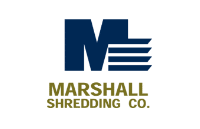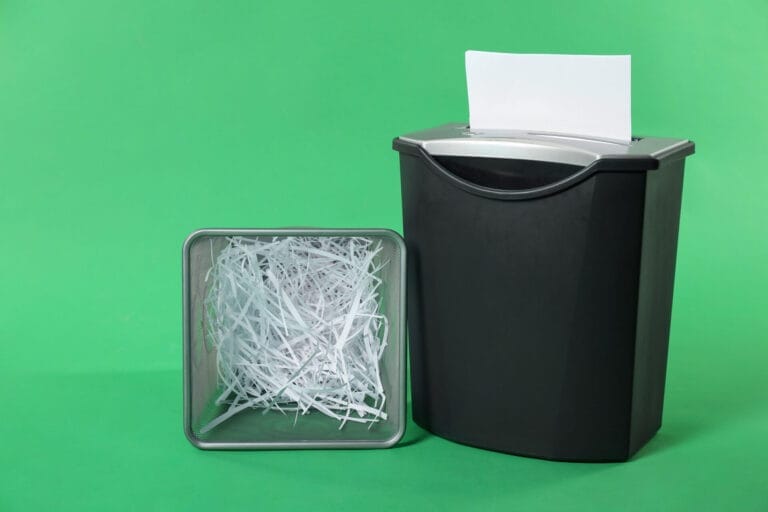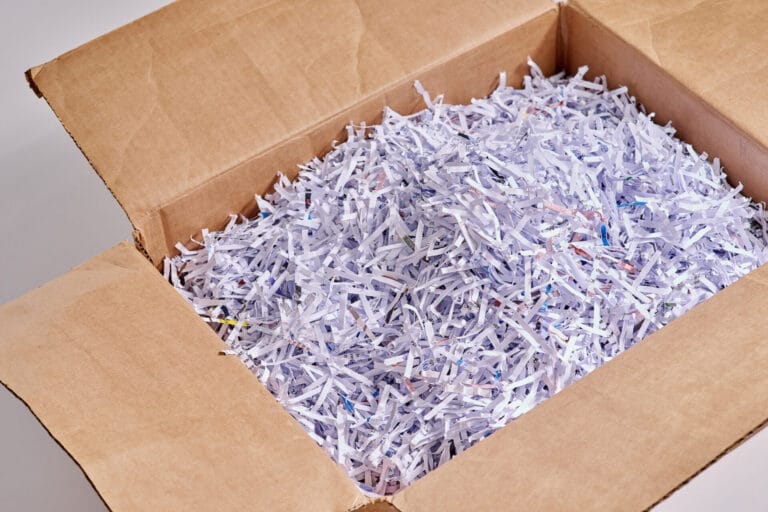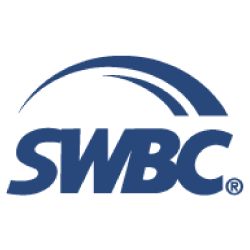How Document Shredding Helps Businesses Stay Compliant Year-Round
Every industry is governed by data privacy laws that dictate how businesses collect, store, and dispose of sensitive information. In other words, protecting sensitive information isn’t just good practice—It’s mandated by law. Failure to comply can result in costly fines, lawsuits, and reputational damage.
Proper document destruction is one of the easiest and most effective ways to stay compliant year-round with federal and state regulations. This is where professional compliance shredding services play a crucial role. In fact, by helping businesses meet their legal obligations while protecting their reputation and their customers, compliance shredding services have become a cornerstone of comprehensive information governance strategies.
In this article, we’ll break down key compliance requirements and explain how professional shredding supports your business in staying audit-ready and legally secure.
The Regulatory Landscape
Businesses face numerous regulations requiring proper document destruction. Below are some of the key ones.
Health Insurance Portability and Accountability Act (HIPAA)
Applies to: Healthcare providers, insurers, and their business associates
HIPAA requires that Protected Health Information (PHI) be safeguarded throughout its lifecycle, including disposal. Improper disposal—such as tossing patient records in the trash—can lead to severe penalties.
HIPAA requirements include:
- Proper destruction of physical and electronic PHI when no longer needed,
- Documentation of destruction procedures,
- Risk assessments for potential data breaches, and
- Employee training on proper handling of sensitive information.
Failure to comply can result in fines up to $50,000 per violation, with annual maximums of $1.5 million.
How shredding helps:
Compliance shredding services ensure that patient files, billing statements, and medical records are destroyed beyond recognition, thereby rendering PHI completely unrecoverable.
Fair and Accurate Credit Transactions Act (FACTA)
Applies to: Any business or individual handling consumer information
FACTA mandates that businesses properly dispose of consumer information derived from credit reports to prevent unauthorized access and identity theft. This regulation affects virtually every business that handles consumer information.
Key requirements include:
- Reasonable measures to protect against unauthorized access to consumer information,
- Proper disposal of personal identifying information,
- Written information disposal policies, and
- Regular risk assessments.
Violations can lead to penalties of $2,500 per violation, with potential class action lawsuits adding significant liability.
How shredding helps:
Shredding keeps your business in line with FACTA disposal rules by ensuring that documents containing Social Security numbers, account data, and credit histories are securely destroyed.
Gramm-Leach-Bliley Act (GLBA)
Applies to: Financial institutions, including banks, loan agencies, and investment firms
GLBA requires the protection of customer financial data, especially during disposal. Institutions must implement safeguards that include secure destruction methods.
Financial institutions must protect consumers’ nonpublic personal information through:
- Comprehensive security programs,
- Secure disposal of consumer information,
- Regular risk assessments, and
- Documentation of compliance measures.
Penalties can reach $100,000 per violation for institutions, with individual officers and directors facing additional fines.
How shredding helps:
With scheduled shredding programs, businesses can systematically destroy old financial records and statements in compliance with GLBA to avoid the risk of data leaks.
State-Level Data Protection Laws
Many states have enacted their own data protection laws, such as:
- California Consumer Privacy Act (CCPA),
- New York SHIELD Act,
- Massachusetts 201 CMR 17.00, and
- Illinois Personal Information Protection Act
- Texas Identity Theft Enforcement and Protection Act (TITEPA)
These state regulations often contain specific requirements for document destruction and can impose significant penalties for non-compliance.
How Compliance Shredding Services Support Regulatory Requirements
Professional shredding partners provide several critical components that help businesses maintain compliance.
- Documented chain of custody
Compliance shredding services offer locked collection containers to secure documents before destruction and they have trained security professionals to handle the materials. They also use GPS-tracked vehicles for transport and always maintain a documented transfer of custody. Upon completion, they issue a certificate of destruction for audit purposes.
This documented process creates a defensible audit trail that demonstrates due diligence—a critical factor when facing compliance inquiries.
- Consistent implementation of destruction policies
Regular shredding schedules ensure that documents are destroyed according to retention schedules, no sensitive materials accumulate beyond necessary timeframes, all employees follow consistent disposal procedures, and destruction occurs before information becomes vulnerable.
This consistency helps organizations demonstrate that their compliance measures are not merely written policies but actively enforced practices.
- Customized compliance programs
Professional compliance shredding services can develop customized programs addressing industry-specific regulatory requirements, unique organizational needs, risk assessment results, and integration with existing compliance frameworks.
These tailored approaches ensure that shredding programs precisely target the compliance risks specific to each organization.
- Employee training support
Many shredding service providers offer educational materials about compliance requirements, training sessions for employees, updates on regulatory changes, and best practices for document handling. This educational component ensures that staff understand their role in maintaining compliance.
- Comprehensive media destruction
Modern compliance extends beyond paper documents. Professional shredding services typically destroy hard drives and electronic storage devices, microfilm and microfiche, X-rays and medical imaging, product samples and prototypes, and uniforms and ID badges.
This comprehensive approach ensures that all forms of sensitive information are properly destroyed according to applicable regulations.
The Cost of Non-Compliance Vs. Proactive Shredding
If you don’t comply with the document destruction processes required by law, you could be facing regulatory fines and penalties, civil litigation, breach notification cost, reputational damage, lost business opportunities, and remediation expenses. As professional shredding typically costs a fraction of what a single data breach or compliance violation might entail, it’s a worthwhile and prudent risk management investment.
Implementing a Year-Round Compliance Shredding Program
Follow these steps to maximize the compliance benefits of professional shredding.
- Conduct a comprehensive risk assessment to identify all information types requiring secure destruction.
- Develop a written retention and destruction policy that addresses all applicable regulations.
- Establish regular shredding schedules based on document volumes and sensitivity.
- Train all employees on proper document handling and destruction procedures.
- Maintain destruction certificates and other documentation in an organized system.
- Review and update your program as regulations evolve.
Choosing the Right Shredding Partner
With data privacy laws only becoming stricter, staying compliant isn’t optional—it’s essential. Partnering with a trusted provider of compliance shredding services empowers your business to confidently meet regulatory requirements, protect client trust, and reduce liability.
When selecting a compliance shredding service, look for the following:
- NAID AAA certification,
- On-site or off-site shredding options,
- Certificate of Destruction for every service,
- Trained, background-checked personnel, and
- Eco-friendly recycling of shredded materials.
These features ensure your shredding practices meet legal requirements and environmental standards.
Stay Ahead of Compliance Challenges
For businesses of all sizes, professional shredding isn’t merely an operational convenience. It’s an essential component of an effective compliance strategy that protects customers, employees, and the organization from the significant consequences of improper information handling.
Compliance shredding services provide businesses with a reliable, documented method of meeting their information destruction obligations. By implementing a comprehensive, year-round shredding program, organizations can demonstrate due diligence, minimize compliance risks, and focus on their core business activities with confidence that their information governance practices meet or exceed regulatory standards.
Ready to secure your compliance strategy?
Contact Marshall Shredding today to schedule a compliance shredding assessment and create a custom program tailored to your business needs.


















